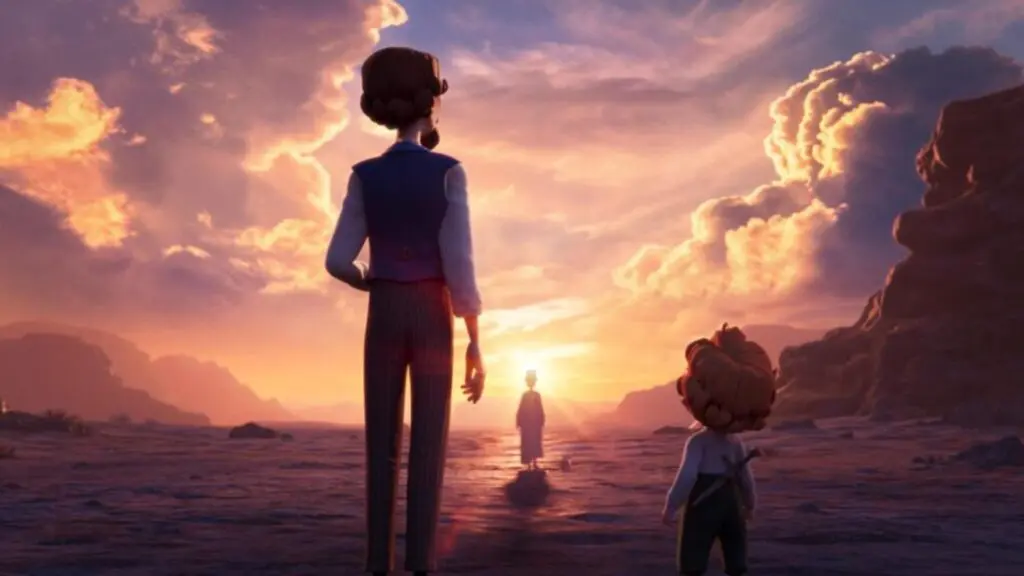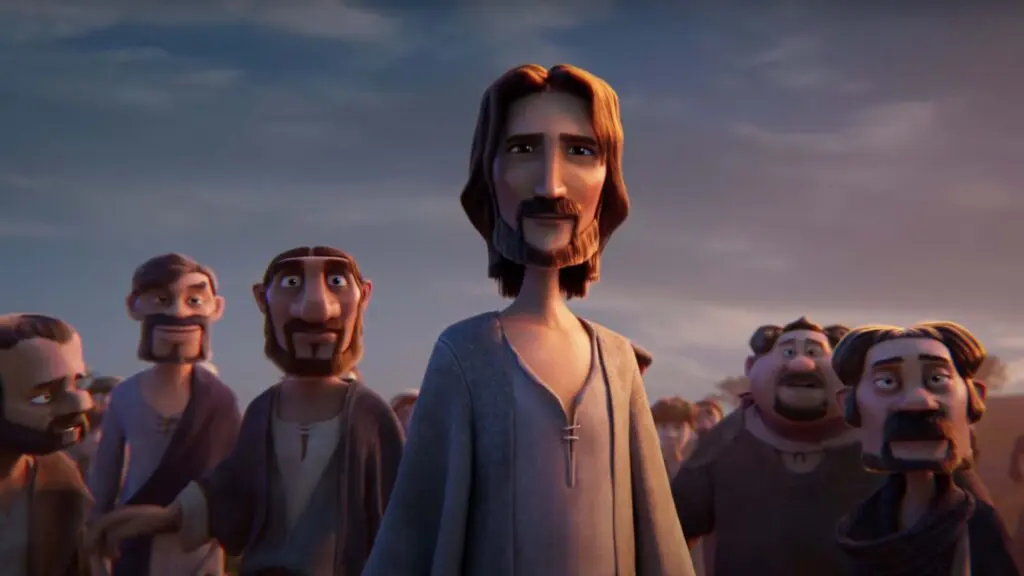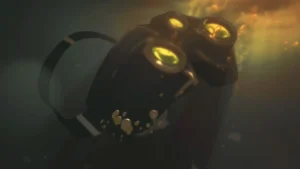Summary
The King of Kings repackages the gospels in a kid-friendly format enhanced by a truly all-star voice cast.
Gone are the days, or so we thought, of the big-budget Biblical epic, the kind of Old Hollywood mainstay that attracted the best talent and made the most money. That kind of thing has fallen out of favour these days, and faith-based film-making has largely been small-scale and independent, produced at scale and on a budget for evangelical types. The King of Kings is a bit of an antidote to that; not a blockbuster in the old school, per se, but a film with an extraordinary cast and real potential to do numbers at the box office for what is otherwise a fairly rote retelling of the story of Jesus, presented in so-so animation and for a younger-skewing audience.
Coming courtesy of Angel Studios and Korean director Seong-ho Jang, The King of Kings filters some of the better-known gospels through the lens of a children’s story told by Charles Dickens (Kenneth Branagh, Death on the Nile; Belfast) to his recalcitrant son Walter (Roman Griffin Davis, Jojo Rabbit) and their cat, Willa (as if to prove a point about how needlessly good this cast is, Willa, who doesn’t speak, is nonetheless voiced by Dee Bradley Baker, the talented voice actor who played a laundry list of roles, including all of the clones, in the Star Wars animations like The Clone Wars and The Bad Batch and played the part in other high profile features like Night at the Museum: Kahmunrah Rises Again and Phineas and Ferb the Movie: Candace Against the Universe)
There’s precedent for this framing device. The plot is loosely based on The Life of Our Lord, Dickens’ unpublished retelling of the gospels for his own children. It’s a bit self-aggrandizing of the film to have one of the world’s most famous storytellers recount one of our oldest stories for the benefit of his kids, constantly extolling its importance and brilliance in frequent explanatory cutaways as he goes, but that’s tempered a bit by the fact that the existence of the original novella suggests he probably did it in real life. And it gets to the heart of what The King of Kings is trying to achieve with this presentation, which is highlighting the most basic and fundamental appeal of these stories.
Walter is obsessed with King Arthur, for instance, so one of the ideas implicit in the script is exploring how one can be kingly without wielding a sword. It’s all like that. Walter represents an excitable generation who need pizazz to hold their attention, and Dickens plays the sagely storyteller who understands that some of the stories you think are boring or played-out are the most rich in wisdom and drama. They just require a bit of explaining.

Charles Dickens (Kenneth Branagh) and his son Walter (Roman Griffin Davis) in The King of Kings
This is why The King of Kings is so explicitly a children’s movie and offers little value for adults – let alone 35-year-old atheists like me. The vignettes display a very simplistic and sped-up version of a gospel, the significance of which is then summarily explained by Dickens for Walter’s benefit. But you could imagine many young viewers finding that structure illuminating, and even I can admire the film’s clean narrative lines, its concise and effective storytelling giving the 104-minute feature an anthological feel.
But the cast proves this isn’t a half-hearted project. Dickens’ wife Catherine, who has almost nothing to do, is played by Uma Thurman. Jesus is played by Oscar Isaac. Mark Hamill voices an exaggerated King Herod, Forest Whitaker lends a steady hand to Peter, and Ben Kingsley hams things up as another villain, High Priest Caiaphas. Pierce Brosnan shows up for like one scene as Pontius Pilate, sounding distractingly similar to his character in MobLand. This really is a who’s-who Hollywood cast taking their roles very seriously, despite how unchallenging the material is.
And maybe that, too, is the point. That so many stars were attracted to this project speaks to the same point Dickens is making by regaling his son with these stories – they are, whether you believe in them or not, important, part of the cultural firmament on which contemporary society has been built. The King of Kings realizes this, and doesn’t sweat the small stuff, like the animation sometimes being a bit flat and lifeless, like it’s trying to recoup the money spent on the cast. There’s confidence in the strength and value of the storytelling itself, and the kid-friendly packaging is designed to let the stories speak for themselves. On that level, at least, The King of Kings performs precisely as advertised.




